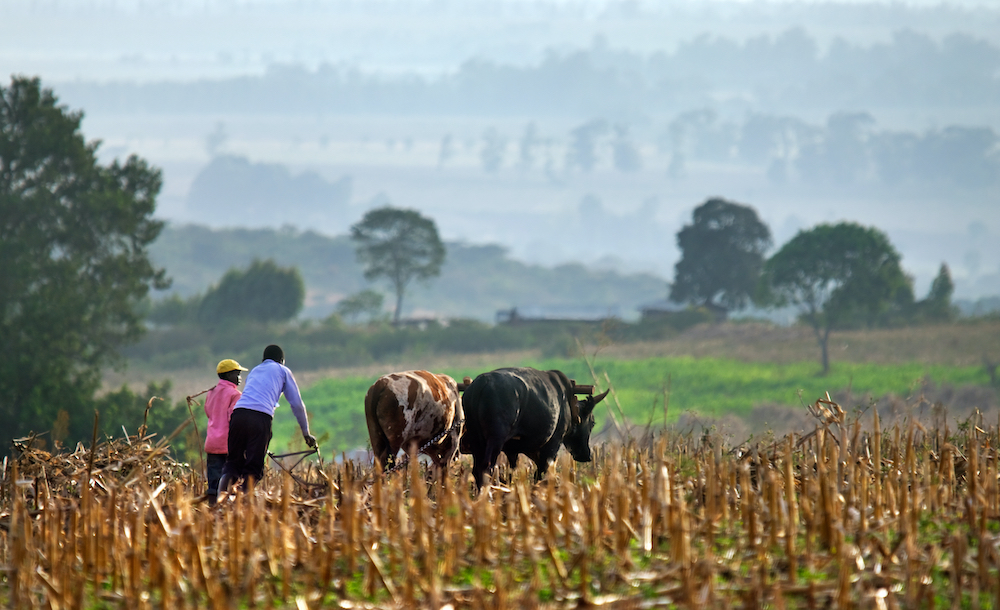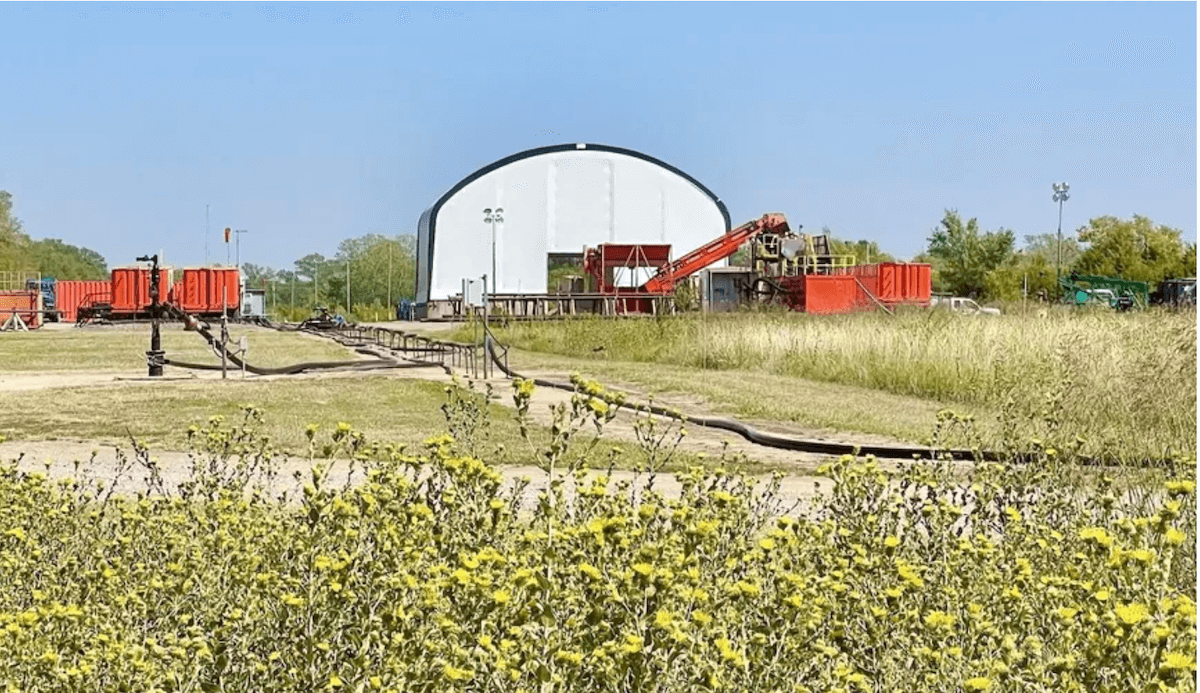If you are an investor interested in learning more about how to invest in climate justice solutions, join us on December 3rd for a Ceniarth-hosted webinar, “Climate Justice: What Can I Do Now?”. Register here.
Record arctic temperatures. Devastating wildfires. Floods and hurricanes growing more frequent every year. The climate that sustains us is breaking down in front of our eyes. This is not news.
Yet while environmental implications of climate change have long been a key area of interest for impact investors, we must acknowledge that the world’s poorest and most marginalized will bear a disproportionate burden from the climate crisis. At Ceniarth, we fundamentally believe that climate solutions should proactively benefit the people most directly affected by this harsh reality.
Nowhere is this more true than in Sub-Saharan Africa, where much of Ceniarth’s direct lending activity has been focused. This part of Africa is on the front line of climate change and is already seeing dramatic climactic shifts, with once-in-a-decade droughts now occurring in multiple seasons in a row.
In this region, climate justice means investing in comprehensive approaches to land stewardship and agricultural adaptation for the most vulnerable communities. Smallholder farmers, primarily in the global south, account for half or more of the world’s food production, but suffer from a crippling lack of access to resources that would allow them to adapt their farming practices. The way that these farmers manage their land is a major contributor to carbon emissions, and their capacity to sustainably farm will be crucial to global food security over the coming decades.
Impact first
And yet despite growing investor commitments to climate finance, businesses and non-governmental organizations focused on climate justice often struggle to access the right capital to grow their important work. Investing in renewables globally has become a lucrative business attracting an excess of commercial capital. From cleantech and renewables to environmental, social and governance, or ESG, mutual funds and fossil fuel divestment efforts, there has been no shortage of attention to climate investing.
Investing in climate justice on the other hand, requires an impact-first mix of grant subsidy and patient, low cost capital.
In addition to a variety of fund investments that address climate justice, Ceniarth has a direct investment portfolio that spans 27 enterprises and about $28 million in capital deployed in Sub-Saharan Africa. Across our many investments in the region, a few key underlying themes have emerged in our climate justice work:
1. Poverty drives unsustainable practices: Rural farming communities are trapped in brutal cycles of poverty, which leads to short-term decision making, at the cost of sustainability. There is an acute shortage of income generating work in rural areas, which is exacerbated by the rapid urbanisation of the global south. Young people do not see opportunities in their communities and move to big cities, further reducing rural economic activity. Poverty for those left behind leads to deforestation for firewood, slash and burn agriculture, and other unsustainable farming practices that erode soil quality and accelerate desertification. At Ceniarth, we have maintained a clear focus on rural income generation as we know that improving overall livelihoods in these vulnerable communities will provide a level of financial stability and resilience that will allow individuals to invest in better long term practices.
2. Holistic solutions are needed to change behaviour: Smallholder farmers are by nature very conservative. Their season’s harvest is often their primary income and nutrition source, and they are naturally reluctant to take the risk of trying a new crop or farming approach. In addition, they lack the capital to invest in machinery or better quality seed and fertiliser. For this reason, we look for partners that provide a full package of support to farmers, including financing, training, access to inputs, access to markets, and insurance. We have found that these solutions are best placed to meet the needs of their rural clients and more likely to deliver the social and climate impacts we target.
3. Long-term finance and land security will support sustainability: More sustainable farming practices usually involve shifting to a longer-term perspective in decision making, for example investing in improving soil quality, planting trees or investing in farm equipment. Farmers can only think long term if they have a secure claim to their land and access to finance that allows long-term investment. Where possible we try to offer long-term capital that allows our partners to do the same for farmers, and look for solutions that actively work to support smallholder land rights.
Climate justice portfolio
We apply these themes in many ways across our portfolio. Some key examples are:
Tree planting: Komaza. Komaza is a social business that helps smallholder farmers to grow commercial timber trees on unused land in Kenya. To date, the business has planted 5.2 million trees in Kenya. This distributed micro-forestry approach gives inputs and support to allow farmers to generate long term income by hosting commercial timber trees at no upfront cost. The trees serve to sequester carbon and help reduce soil erosion in arid areas. At maturity, Komaza, leveraging a fully integrated model, harvests trees for processing into various, value-added wood products. Other Portfolio Examples: Mountain Hazelnuts
Farming adaptation and agronomic assistance: One Acre Fund. One Acre Fund is an NGO which provides input finance, training and access to high-quality inputs for smallholder farmers in Sub-Saharan Africa. One Acre Fund works with over one million farmers across East Africa in groups to help them improve farming practices and grow incomes. They have supported farmers to transition to drought resistant seed varieties, plant trees on their land and rapidly switch crops planted in response to unexpected seasonal climate variations. One Acre Fund makes use of extensive demonstration farms, as well as integrated insurance offerings, to ensure farmers have confidence in making these changes to their practices. Other Portfolio Examples: Good Nature Agro, iProcure, Apollo Agriculture, MyAgro, Farmerline.
Income improvement for conservation: COMACO. COMCACO is an NGO that supports agricultural cooperatives in Zambia and works with over 179,000 farmers. It was formed to give rural communities a sustainable source of income to reduce the environmental impacts of deforestation and poaching. COMACO helps farmers improve soil structure, access quality seeds, and provides off-take for produce. They have also accessed UN financing and carbon credit income to support farmers to run beekeeping and forestry programs.
Access to climate insurance: Blue Orchard InsuResilience Fund. The InsuResilience Fund, managed by Blue Orchard, invests both debt and equity into insurance companies, microfinance institutions and technology companies to grow the ecosystem for agricultural climate insurance in Africa, Asia and Latin America. The fund helps develop new climate insurance products, and support their commercialisation through existing insurance and microfinance companies. They have brought much needed capital and expertise to increase the currently very limited access to climate insurance in their markets.
Efficient, value-added supply chains: Kuli Kuli Foods. Kuli Kuli Foods is the world’s leading moringa brand. Kuli Kuli helps women in West Africa use more moringa locally and earn a sustainable livelihood by selling a portion of each harvest to the US where it is manufactured into a variety of healthy food products. Launched in 2014, Kuli Kuli is now a thriving social enterprise that sells moringa products in thousands of stores and supports small moringa farming communities around the world. Other Portfolio Examples: Moringa Connect, Get It, East Africa Fruits, Sarura Commodities, Farm Fresh.
Farm infrastructure investment: Kheyti. Kheyti is an Indian business that provides farmers with a greenhouse in a box solution. The company provides a package of greenhouse and irrigation technology, finance, training and access to markets. This technology allows farmers to grow crops with significantly less water and more resilience to changing climate conditions, along with improving incomes.
Access to energy: SunFunder. Founded in 2012, SunFunder is a specialty solar finance company working to deploy capital to energy access enterprises around the world. The firm has unlocked over $135 million in lending capital for a wide range of solar ventures, from small scale solar lighting and solar home system vendors to larger commercial & industrial solar applications. Other Portfolio Examples: CrossBoundary Energy Access, Jaza Energy, SIMA Angaza Distributor Fund.
Access to clean drinking water: WaterEquity. By 2050, as a result of climate-linked changes and water mismanagement, ~40 percent of the world’s population is projected to live under severe water stress. WaterEquity, originally incubated by the global water health charity Water.org, invests in microfinance institutions helping individuals in developing economies access clean water and sanity solutions. Across three funds to date, the firm has deployed over $60 million in capital reaching 1.6 million individuals.
These are just a sample of the innovative and high impact climate solutions we see focused on supporting the most vulnerable, rural communities in the global south.
To be sure, Ceniarth has made investments in many of these environmental strategies – we were the first committed capital to specialty energy financier Generate Capital, a significant investor in Generation Investment Management’s Global and Asia Equity Fund, and a backer of sustainable timbers firms such as Lyme Timber and the Forestland Group. That said, the primary focus of our climate investing is on climate justice.
We are hopeful that impact investors concerned about climate change will expand their lens on solutions and will recognize the critical role that agriculture, particularly in developing economies, plays in climate calculations. This is not an either/or proposition. We must tackle both the transition of the world’s developed energy infrastructure away from carbon-intensive fossil fuels, while addressing the climate justice and agricultural implications for the world’s poor. People and the planet are depending on our actions.
Vince Knowles is a principal and Greg Neichin is a director at Ceniarth.











